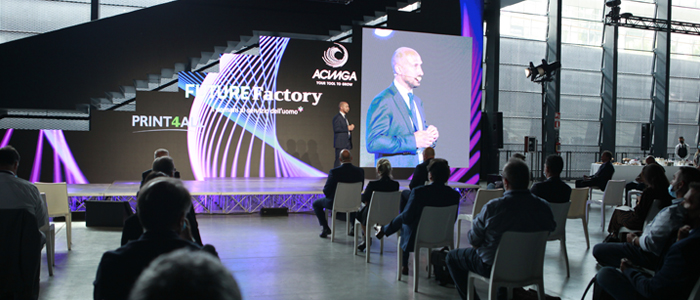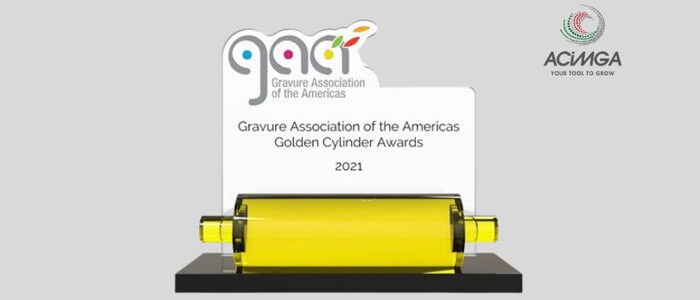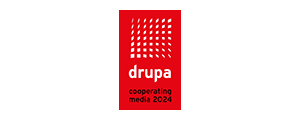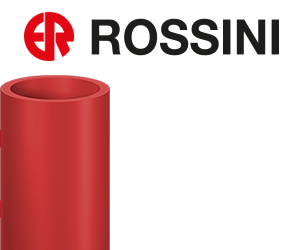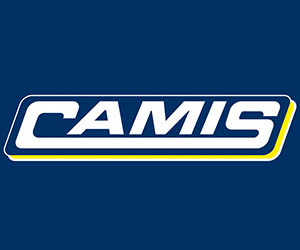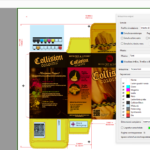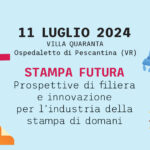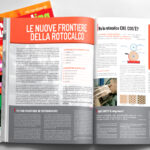More than 700 international participants in online mode and about 150 in person at the hybrid Future Factory this September 2021. Where world-class experts and business representatives from across the package printing community talked about the future in Milan.
Like all of us who came to say goodbye for the first time after the very long period of physical distance suffered by people and companies, Andrea Briganti, director of Acimga (the association of Italian printing and converting machinery manufacturers, which organized the event) was emotional in his opening speech.
He introduced the busy program of an event that has changed its name, from Print4All Conference to Future Factory, although it remains the main stage in the run-up to the Print4All trade fair that finally looms on the horizon at Fiera Milano-Rho from 3 to 6 May 2022.
The new title is intended to underline the collective nature of this well-established event, which engages the entire production-consumption chain of printed packaging to think about what the factory of the future means. A new type of manufacturing, stressed the director of Acimga, which develops under the banner of disruptive phenomena such as the new instances of sustainability, servitization, automation 4.0, ethics of relationships, balances to be invented between smart working and that direct relationship between people “which represents one of the competitive advantages of the Italian system” and recalls the centrality of man in any model of economic activity.
The Future Factory, said the director of Acimga, has the objective of creating a culture in the sector, offering the printed product community (packaging dominates but is not the only one) evolutionary scenarios and information on how companies and institutions are designing change and consequently orienting their own concrete development: in R&D orientations, in business organization models, in the relationship between production and finance, distribution and consumers, private and institutions.
[Italy+Germany]²
A development that even brings into play relations between competitors, as indicated in the course of bilateral meetings between Italy and Germany promoted by the Italian Ministry of Foreign Affairs and International Cooperation in collaboration with the German Ministry of Economy and Energy. It was launched first of all in our printing and converting supply chain last April during virtual drupa, and renewed during this Future Factory, personally introduced by Manlio Di Stefano, Undersecretary of State for Foreign Affairs.
Here the comparison on market trends and value between Acimga and VDMA – the two main world exporters of graphic technologies – prepares an alliance that will take shape in the participation in international trade fairs (first of all Print4All). Thanks to this path, the exhibition will not only be an exhibition of strength and technology but also an affirmation of those common values and priorities, precisely those that emerged during the conference in the multiple interview conducted by Matteo Bordone: ecological transition, collaboration between companies, generational opening, disruptive use of digital technology, great attention to the many faces of packaging….
From the abstract to the concrete
During Future Factory, international “gurus”, sociologists of the market and panels of companies took turns to give life to dense round tables moderated by Armando Garosci and Matteo Bordone.
On September 15, printing and converting technology producers (Simec, Omet, ACE, Uteco, Prades) showed what the industry means by servitization and innovation, moving from general principles to concrete business strategies. In turn, the brand owners called on stage (Nestlè, Eurocompany, Henkel, Pedon) have brought examples of initiatives that have changed the paradigm of product and identity, creating value and competitiveness along paths only apparently far from business and profit.
In the second session on September 16, retailers and printers took the stage in a very informative discussion. The largescale retail trade, represented by Esselunga, Leroy Merlin and Penny Market, showed just how open the horizons of these brands are, as they involve consumers at all levels of their lives, with initiatives that have a strong ethical connotation and where sustainability plays a primary role. As for printers and converters (Sacchital, Smurfit Kappa, Sales, Lucaprint, Rotolito), they showed a small but open-minded and aware Italian industry. Visions alternated with the denunciation of problems and the proposal of concrete solutions, achievable – this is the mantra of this conference – only by working together and with the help of those famous intermediate bodies that today more than ever serve as a driving force and intermediation with institutions.
Looking outside the fence
The reports of the big names have offered valuable insights into how the socio-economic context in which we all operate is evolving, with inevitable effects on the small world of each. Alec Ross, to name the speakers on the first day of the conference, spoke of the inexorable digitalization of processes and services and of how in Italy this could lead to the construction of an alternative (and better) model of industry to those made in California and China, as shown by the Marchesini success story cited as an example.
Similarly, David Stark and Ivana Pais spoke about the organization of work and relations between stakeholders (capital, labor, consumers), starting from platforms as new alternative models to the previous Tayloristic, managerial and so on. With a “patient capital” that works to conquer consumers directly and then take them with it, moving laterally into new business territories (Amazon).
Silvia Zucconi, Head of Market Intelligence at Nomisma, spoke about environmental sustainability when she presented the results of the latest Osservatorio Packaging del Largo Consumo 2021. A true mine of data, the Observatory documents the choices, doubts and requests of citizens regarding packaging that contributes powerfully to forming the idea of sustainability of products and daily gestures. Alemanno, the thinking head of Ipsos, also spoke about Environment, developing an intervention rich in data and reasoning. It started from the consideration that, “after the adolescent phase of enthusiasm”, today the idea of corporate social responsibility “is no longer so light” if it is true – as it is true – that it will be increasingly difficult for a company get funding, or attract talent, without being sustainable.
During the second day of the conference, the visionary Bertrand Badré, who outlined the geopolitical perspectives that significantly condition the economic ones, and the economist Nouriel Roubini, who documented the possible economic scenarios, offered a sample of their thoughts, both optimistic and pessimistic, of our near future, as well as professor and lawyer Paola Mariani who, from her point of view, underlined the unavoidable global dimension (“like it or not”) of business relations and the evolution of the rules that regulate them.
[su_image_carousel source=”media: 14301,14315,14303,14305,14307,14309,14311,14313,14299,14317,14319,14321″ slides_style=”photo” crop=”none” align=”center” max_width=”700px” dots=”no”]

